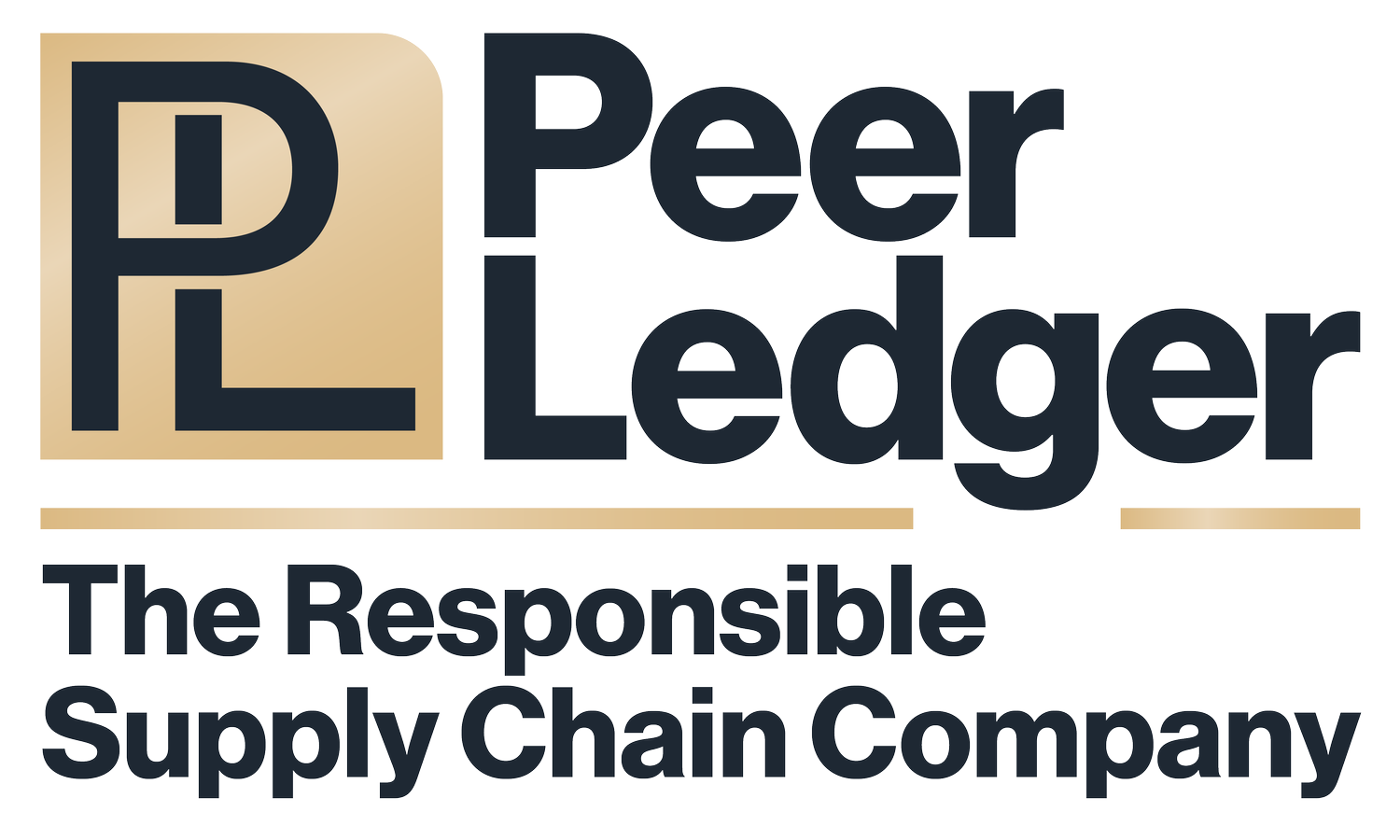How traceability technology helps respond to climate change
Peer Ledger’s MIMOSI Connect offers an all-in-one solution to support a responsible supply chain and enables accurate Scope 3 GHG emissions calculations.
Climate change is one of the most complex issues facing us today. It scales from local to global problems and involves many aspects - including economics, society, politics, moral and ethical practices. After a temporary decline during the COVID-19 pandemic, CO2 emissions are projected to rebound and grow by 4.8% this year (2021) as demand for coal, oil and gas rebounds with the economic recovery. This growth in greenhouse gas (GHG) emissions obviously makes the effort more difficult to achieve net-zero emissions by mid-century.
As global leaders convened at the U.N climate conference in Glasgow, Scotland, several pledges have been made, and countries joined in committing to limit GHG emissions, phase out coal usage, and end deforestation. That being said, climate scientists warn that it will take only eleven years before the planet warms to more than 1.5C from pre-industrial levels at the current level of emissions. We must act now to reduce GHG emissions and remove environmentally-bad practices from daily production, distribution and transportation within the value chain.
According to a report by the International Energy Agency (IEA), between now and 2030, readily available technologies are the main drivers to global reductions in CO2 emissions and the deployment of clean energy technologies. Among these technologies are technologies like Peer Ledger’s MIMOSI Connect that enable companies to better measure their Scope 3 emissions - the component that is larger than Scope 1 and Scope 2 combined - to better inform decisions and manage environment preservation.
Comprehensive dashboard for monitoring Scope 3 GHG emissions
MIMOSI Connect simplified dashboard
A comprehensive and collaborative view of trusted GHG emissions data proves critical in mitigating climate change. MIMOSI Connect captures all transactions and metrics, then calculates and screens them on a dashboard, making it possible to measure and manage environmental impact more accurately. Aggregated sustainability data such as water usage and chemical composition provides input to an effective transition from fossil fuels to clean and renewable energy. GHG Scope 3 dashboards can capture actual emissions factors across a company’s global value chain.
MIMOSI Connect’s Mobile geofencing technologies reduce the risk of illegal logging and deforestation. The system red flags sensitive areas that may involve deforestation or bad practices and require products from that area to document their legitimacy. With the urgency of needing to act on climate change, leaders focus on net-zero deforestation and restoring our natural habitats as positive solutions.
Real-time data for climate change adaptation
Even though the momentum of addressing global warming is increasing, still the climate is changing unexpectedly from place to place. Companies need to react with agility and to adapt their supply chain management to new climate conditions, changing regulations, and increasing environmental and social requirements from the general public. Near real-time visibility enables companies to know the current conditions in their supply chains and react to changes. Technology like MIMOSI Connect is designed to be interoperable with other systems. Its API communicates with other APIs and securely transfers data on a permissioned basis. MIMOSI’s GHG dashboarding enables companies to take more aggressive actions to reduce emissions and to understand and score impact across their supply chains. Asset owners can increase the value of their responsibly-sourced and manufactured products and manage resources wisely in the context of climate change.
Investment for a sustainable grow future
Traceability technology can drive the sustainability of many types of businesses and create more profit through better collaboration, significant cost savings, and unbeatable customer loyalty. The strategic value-added to the supply chain comes from seamless communications and good relationships among stakeholders. The immutable data sharing maintains transparency and connections, helping minimize conflict and enhance the firm’s ability to operate on schedule and budget. Good practices improve risk management and save costs. Hence, it helps companies get through exterior issues out of their control, such as resource scarcity, natural disasters, and civil conflict. A company with a sustainability plan is positioned to better react to economic, social, environmental and regulatory changes.
Today’s customers, especially the young generation, expect more transparency, honesty and social and responsible impacts from companies. Reports found that most Millennials and Gen Z prefer sustainable products and are willing to pay more for those. Therefore, companies can charge premium prices for their positive corporate responsibility performance and for fulfilling their customer’s intangible demands. Higher performers on ESG (environmental, social and governance factors) attract significantly more attention and opportunities from investors.
References
The International Energy Agency, Global Energy Review 2021 - CO2 Emission. Retrieved from https://www.iea.org/reports/global-energy-review-2021/co2-emissions
BBC News (Nov 2021), COP26: More than 40 countries pledge to quit coal. Retrieved from https://www.bbc.com/news/science-environment-59159018
Harvey et al (Nov 2021), World’s biggest banks to play a role in limiting greenhouse gas emissions, The Guardian. Retrieved from https://www.theguardian.com/environment/2021/nov/03/worlds-biggest-banks-to-play-a-role-in-limiting-greenhouse-gas-emissions
CBC News (Nov 2021), Several countries pledge to phase out heavily polluting coal — but U.S and China aren't among them. Retrieved from https://www.cbc.ca/news/world/cop26-coal-phase-out-pollution-fossil-fuels-1.6236938
Rannard G. & Gillett F. (Nov 2021), COP26: World leaders promise to end deforestation by 2030, BBC News. Retrieved from https://www.bbc.com/news/science-environment-59088498
The International Energy Agency (May 2021), Pathway to critical and formidable goal of net-zero emissions by 2050 is narrow but brings huge benefits, according to IEA special report. Retrieved from https://www.iea.org/news/pathway-to-critical-and-formidable-goal-of-net-zero-emissions-by-2050-is-narrow-but-brings-huge-benefits
Whelan T. & Fink C. (October 2016), The Comprehensive Business Case for Sustainability, Harvard Business Review. Retrieved from https://hbr.org/2016/10/the-comprehensive-business-case-for-sustainability
Greg Petro (Jan 2020), Sustainable Retail: How Gen Z Is Leading The Pack, Forbes. Retrieved from https://www.forbes.com/sites/gregpetro/2020/01/31/sustainable-retail-how-gen-z-is-leading-the-pack/?sh=740539eb2ca3


